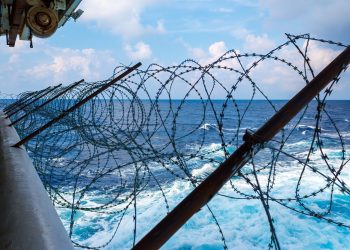The pressure is mounting on governments to designate seafarers as key workers, with the International Transport Workers’ Federation (ITF) highlighting that the possibility of forced labour and human rights abuse is a serious challenge.
Specifically, recently the resolution, put forward by Ambassador Dian Triansyah Djani of the Republic of Indonesia and leading a coalition of 71 countries, encourages governments to immediately implement measures to allow crew change, and to ensure access to medical care for all maritime personnel.
ITF General Secretary Stephen Cotton commented that
The adoption of Indonesia’s resolution by the UN General Assembly has put seafarers and their ongoing struggle firmly at the centre of the governments’ attention as the consumer holiday season approaches and industry concern over potential forced labour in their supply chains reaches new highs.
He added that they have the full authority of the United Nations General Assembly saying that if countries want to participate in the global economy, then they must recognise this global workforce as ‘key workers’ with practical effect. Key worker status means letting seafarers get off in their ports for medical attention. It means letting them get to an airport to fly home and return to their families when their contract on a ship is completed. It means letting replacement crews through a country’s border to join those waiting ships.
Moreover, the UN’s call was followed this Tuesday by the adoption of a resolution by the International Labour Organization’s Governing Body. Following, Chair of the ITF’s Seafarers’ Section, David Heindel, welcomed the ILO decision to up the pressure on governments and companies ahead of the holiday season.
They added that the ITF and their global family of seafarers’ unions will be holding governments and companies to account, including assisting seafarers to enforce their rights to stop working and be repatriated following completion of their contracts, even if that means disrupting key supply chains in the process.
They concluded that
Effective crew change still required more governments to accept seafarers’ documentation and Covid-19 PCR test results so that they could come ashore. The ITF was doing its part by working with industry to improve the reliability of test results of seafarers eager to join ships.




























































